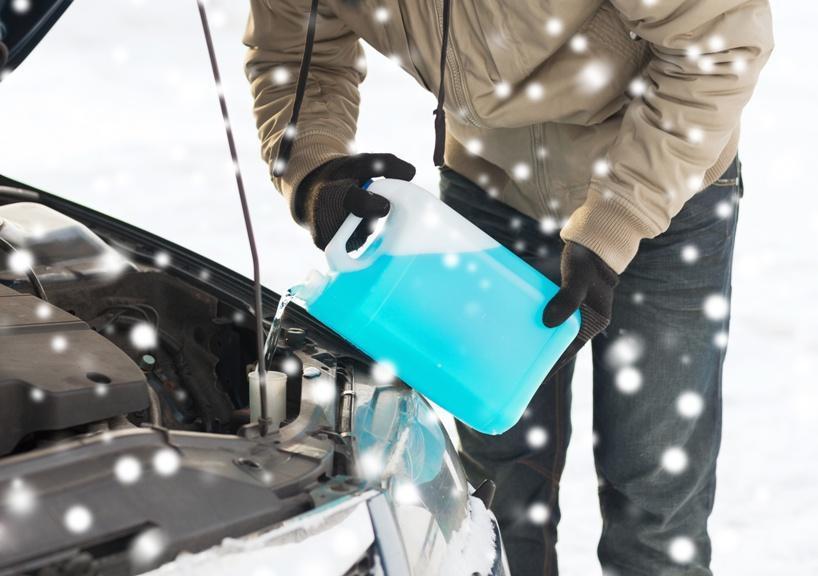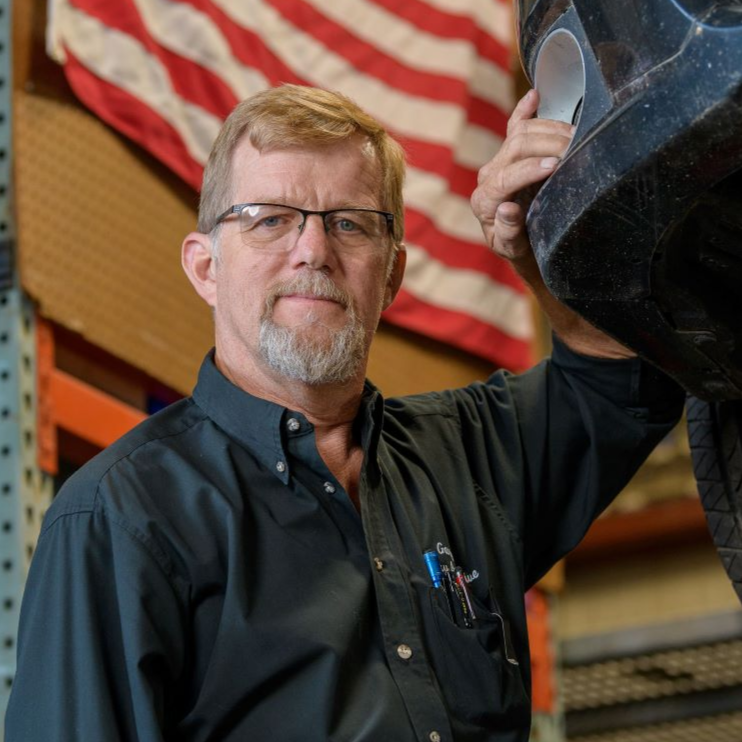Radiator Service: Is Your Vehicle Ready for Winter?
Your vehicle’s cooling system not only helps protect your engine from summer’s high temperatures; but it will help protect it through the freezing temperatures of winter. Avoid an emergency radiator repair with regular radiator service to keep your vehicle’s cooling system running at peak efficiency during the winter months.
Radiator Service Tips to survive Winter!
- Check Fluid Levels –.Schedule radiator service on a regular basis to check the coolant level in the radiator tank and the reserve or overflow tank. Before adding additional coolant, ask your radiator repair technician about the right mix of antifreeze coolant. To provide protection against below-zero temperatures, you will want at least a 50/50 mix of antifreeze and water.
- Drain and Flush -- Over time, dirt and contaminants will build up in the cooling system, restricting the antifreeze/coolant flow. Antifreeze can also become acidic and lose its effectiveness. Your auto repair technician can provide you with expert advice as to when to drain and refill the radiator with fresh coolant. It may also be advised to flush the radiator system before changing the coolant. Antifreeze can actually generate a weak electrical current, which can then cause oxidation and eventually failure inside of your coolant system.
- Check Radiator Caps and Hoses -- Check the caps on the radiator and reserve tanks for cracks or other damage. Replace damaged caps immediately, and replace the caps whenever you drain or flush your radiator system. Frequently inspect all of the hoses and tubes that lead from the radiator to the water pump, thermostat and overflow or reserve tank for cracks or cuts that may result in antifreeze leaks. Your radiator repair technician may advise you to replace hoses every three or four years as they become dry and brittle, subject to bursting.
- Check the Tanks -- Visually inspect the radiator tank and overflow or reserve tank every few months. Most of the time cracks begin as very small pinholes or punctures that can be easily repaired. However, the hole will only get bigger if not repaired, and it may become necessary to actually replace the radiator.
Remember: Extreme temperatures and harsh conditions can wreck havoc on your engine. Schedule a radiator service before winter arrives!
Need expert advice on radiator repair? Contact our ASE Certified Technicians at Gary’s Quality Automotive. Call (308) 381-2295 or go on-line at https://www.garysautoinc.com/ for more information about radiator service. Our auto shop proudly serves vehicle owners in Grand Island, NE, Wood River, NE and Doniphan, NE.

Your vehicle’s cooling system not only helps protect your engine from summer’s high temperatures; but it will help protect it through the freezing temperatures of winter. Avoid an emergency radiator repair with regular radiator service to keep your vehicle’s cooling system running at peak efficiency during the winter months.
Radiator Service Tips to survive Winter!
- Check Fluid Levels –.Schedule radiator service on a regular basis to check the coolant level in the radiator tank and the reserve or overflow tank. Before adding additional coolant, ask your radiator repair technician about the right mix of antifreeze coolant. To provide protection against below-zero temperatures, you will want at least a 50/50 mix of antifreeze and water.
- Drain and Flush -- Over time, dirt and contaminants will build up in the cooling system, restricting the antifreeze/coolant flow. Antifreeze can also become acidic and lose its effectiveness. Your auto repair technician can provide you with expert advice as to when to drain and refill the radiator with fresh coolant. It may also be advised to flush the radiator system before changing the coolant. Antifreeze can actually generate a weak electrical current, which can then cause oxidation and eventually failure inside of your coolant system.
- Check Radiator Caps and Hoses -- Check the caps on the radiator and reserve tanks for cracks or other damage. Replace damaged caps immediately, and replace the caps whenever you drain or flush your radiator system. Frequently inspect all of the hoses and tubes that lead from the radiator to the water pump, thermostat and overflow or reserve tank for cracks or cuts that may result in antifreeze leaks. Your radiator repair technician may advise you to replace hoses every three or four years as they become dry and brittle, subject to bursting.
- Check the Tanks -- Visually inspect the radiator tank and overflow or reserve tank every few months. Most of the time cracks begin as very small pinholes or punctures that can be easily repaired. However, the hole will only get bigger if not repaired, and it may become necessary to actually replace the radiator.
Remember: Extreme temperatures and harsh conditions can wreck havoc on your engine. Schedule a radiator service before winter arrives!
Need expert advice on radiator repair? Contact our ASE Certified Technicians at Gary’s Quality Automotive. Call (308) 381-2295 or go on-line at https://www.garysautoinc.com/ for more information about radiator service. Our auto shop proudly serves vehicle owners in Grand Island, NE, Wood River, NE and Doniphan, NE.


